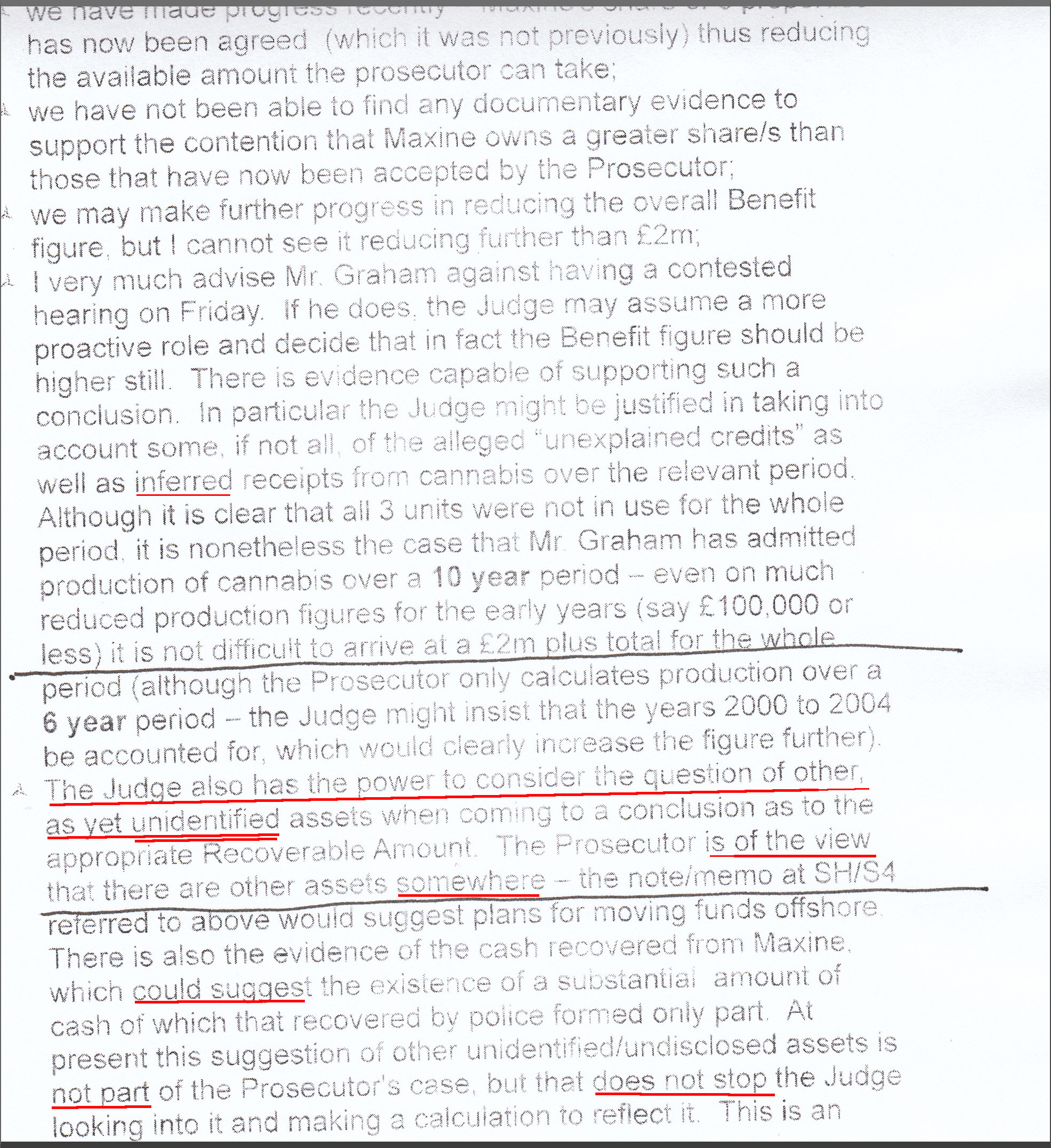
Bad law
POCA - The Proceeds Of Cime Act
In recent times our government has become fixated on money issues. It goes beyond good housekeeping or balancing the budget.
It has become very noticeable that the people who enter 'public-service' harbour the belief that they are entitled to much greater rewards than they have traditionally been allocated. The salaries and behind-the-scenes overly generous pensions being paid to civil service and political appointees in no-risk jobs are now far in excess of those in the cut-and-thrust world of global free enterprise.
POCA is the logical extension of this entitlement culture. The government and the police want to deny 'criminals' the ability to earn money from 'drugs' while they, in the public sector, cannot resist dipping their snouts in the trough.
The Labour government's deal to split drug money with the police is positively mafiaesque.
The other aspect to POCA is the shear conniving vindictiveness: punishing someone for life, over and over again and then extending the punishment to wives, partners, children and parents. It's no better than blackmail.
First, a person convicted of 'drug dealing' is imprisoned and the family assets are split down the middle so the government (and the police) can take half. The assets being taken are usually unrelated to any crime being committed. Straight off, that is excessive.
Then, the government spies (for a lifetime) on the entire family to monitor if members accrue more wealth. If there is any remote suggestion that such new wealth has been generated in any part by the previously convicted 'drug dealer', the government will swoop and again confiscate that wealth; even if the increase in asset value is simply due to inflation, say of the family home.
The previously convicted member of the family is never allowed to rebuild his life and thrive. The entire family is financially punished for the lifetime of the person originally convicted. The bread winner is never allowed to accumulate the assets to look after his children or his aged relatives.
How, exactly, does all of this benefit society?
POCA has a covert objective: the continuance of a criminal class to justify ever more expansion of of the various law enforcement agencies.

Having been a self employed businessman for most of my life I have been in and out of the civil courts as people try to sue me and I try to sue others - usually for not paying me as agreed. I was shocked when I encountered the criminal law system head on because I had been led to believe that the burden of proof was higher in criminal proceedings. In fact — and like much else in this country — the truth is exactly the opposite. The 'bar' in civil proceedings is 'the balance of probability' whereas in criminal law, it is supposed to be 'beyond reasonable doubt'. Somehow, inference has come to dominate over hard evidence in criminal law, especially where money is concerned. For example, take a look at a legal opinion written to me by my (second) barrister. Note the phrases "inferred", "unidentified assets", "somewhere", "does not stop the judge".
Report by Kings College, London and Dukes University, Carolina
Cannabis, as a plant extract, is not harmful. One of the most compelling reports to say so was a joint study by Kings College London and Duke University, Carolina.
You would, however, have to work hard to find that information in the report because, both the authors and the press which quoted extracts from the report, concentrated on teenage and pre-teenage smokers. No one in their right mind suggests that young teenagers should smoke (either cannabis or tobacco) any more than they should be allowed to drink alcohol.
It is noteworthy, for example, that in the UK the government is considering placing additional restrictions on teenage drivers. The simple fact is, there are many things that we should prevent children and adolescents from doing. So to concentrate the anti-cannabis critical firepower on this group is disingenuous to say the least.
In any event researchers in Norway subsequently cast doubt even on the study's assertion that cannabis caused an IQ reduction in teenage smokers.
The most telling lines in all the reporting on this 25 year long study of cannabis are these:
Professor Terrie Moffitt, lead author, who holds a dual appointment at King’s and Duke says: "This work took an amazing scientific effort.
We followed almost 1000 participants, we tested their mental abilities as kids before they ever tried cannabis, and we tested them again 25 years later after some participants became chronic users. Participants were frank about their substance abuse habits because they trust our confidentiality guarantee and 96% of the original participants stuck with the study from 1972 to today. It’s such a special study that I'm fairly confident that cannabis is safe for over-18 brains, but risky for under-18 brains."
Dr Avshalom Caspi, co-author, also from King’s and Duke, says: “I hope this research does not get mired in debates about marijuana legalization for adults. The simple message is that substance use is not healthy for kids. That's true for tobacco, alcohol, and apparently now for cannabis.”
Significantly, though parts of this report are still available across the Internet the quote "I'm fairly confident that cannabis is safe for over-18 brains" no longer appears, leaving the report appearing highly critical of cannabis consumption. Another case of history being re-written?
More soon



